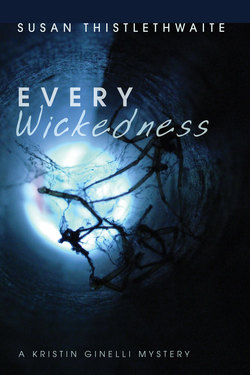Читать книгу Every Wickedness - Susan Thistlethwaite - Страница 5
На сайте Литреса книга снята с продажи.
Acknowledgments
ОглавлениеThe University of Chicago is, of course, a real place, but all the events, characters and locations on and around the university campus, with the exception of the iconic Rockefeller Chapel, are fictional and solely the work of my imagination. The characters in this novel have no relationship to actual events or persons living or dead. The events, buildings and personnel at the University of Chicago hospitals are similarly completely fictional, with the exception of the work of local activists to get a Level 1 Trauma Center opened at the hospital, an effort that has been successful. This life-saving center is scheduled to open in 2018.1
I wish to thank my husband, J. Richard Thistlethwaite, Jr., M.D, Ph.D., for his unfailing support for me in every endeavor I undertake, and for his feedback on parts of this narrative. Any errors are my own.
I would also like to thank W. Dow Edgerton, Professor of Ministry at Chicago Theological Seminary, for his helpful comments on the perils of sailing on Lake Michigan. As someone who has sailed those treacherous waters, this is a subject he knows well.
The character of the University Chaplain, Rev. Jane Miller-Gershman, is fictional, but is named “Jane” as a thank you to Rev. Dr. Jane Fisler-Hoffman, ordained minister of the United Church of Christ and retired Conference Minister, for her careful reading and critical feedback not only on this novel, but on the previous one, Where Drowned Things Live. The real Jane, like so many clergy I know, is a dedicated mystery fan.
The giraffe at the Lincoln Park Zoo, Morgan, who makes a brief appearance in this novel, was, in fact, named “Morgan” by the zoo after my dear friend, Howard Morgan, for his committed volunteer work to support this fine institution. Howard Morgan was also chairperson of the Board of Trustees when I was Chicago Theological Seminary President and over the years I have learned from him how volunteerism works to make the world a more decent place.
StreetWise, a Chicago-based magazine sold by people without homes and those at-risk for homelessness, is also real, founded in 1991, and the actual name is used in this novel. I want to thank Julie Youngquist, Chief Executive Officer of StreetWise, for granting me permission for that use.
StreetWise has one of the largest readerships of any street publication in the United States and it contains articles of national and local interest, as well as art, poetry and articles by actual vendors as well as others. I have been a supporter through purchasing and reading StreetWise since its founding. I have especially admired the poetry. Those poems inspired me to write and include the poetry in this novel. In the face of hard economic times and other challenges, StreetWise has continued to innovate. Go to StreetWise.org for more information and to donate.
The StreetWise vendors that appear as characters in this novel are completely fictional, however, and are not based on any person living or dead. I have, however, tried to portray the courage and resourcefulness of those who struggle with homelessness in the face of a society that is becoming more and more devoid of compassion.
In this novel, human connections are forged across chasms of race, class, disability and educational opportunity. These connections are the warp and woof of goodness. As theologian and ethicist Dr. Beverly Harrison once so wisely said, “God is in the connections.”
Wickedness is the mirror opposite of such goodness. Wickedness works to deform and destroy human life especially for the sake of gaining power over others. Goodness can, at times, overcome the worst of the havoc wickedness can wreak, but often at great cost.
I write fiction because fiction can allow us the psychological space, within the pages of the novel, to explore these themes while we remain safely behind the boundaries of the written word. This may empower us to confront these conditions in the real world to help goodness thrive and make wickedness wither away.
1. Cassie Walker Burke, “U of C Medicine adult trauma center to open May 2018,”Crain’s Chicago Business. http://www.chicagobusiness.com/article/20170607/NEWS03/170609908/u-of-c-medicine-adult-trauma-center-to-open-may-2018, (June 7, 2017)/
